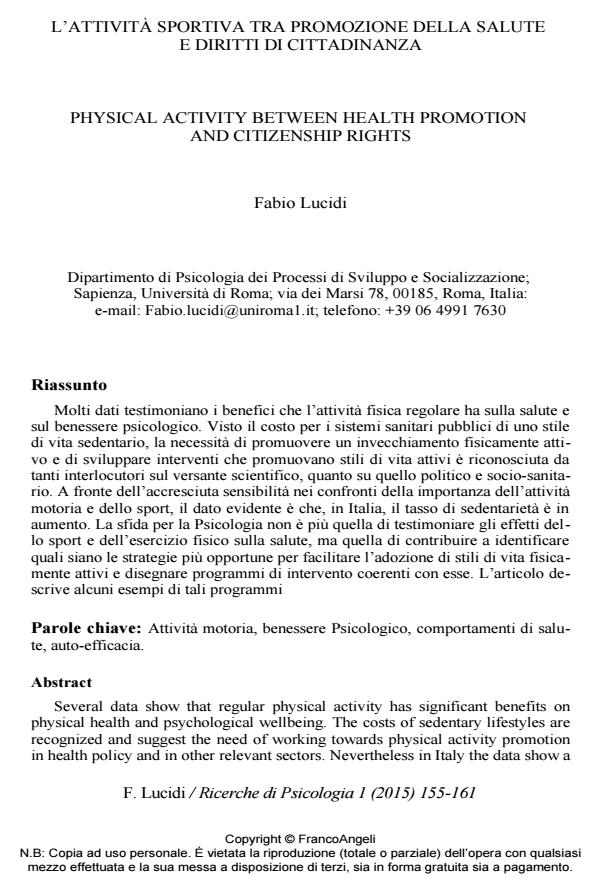Physical activity between health promotion and citizenship rights
Journal title RICERCHE DI PSICOLOGIA
Author/s Fabio Lucidi
Publishing Year 2015 Issue 2015/1
Language Italian Pages 7 P. 155-161 File size 158 KB
DOI 10.3280/RIP2015-001009
DOI is like a bar code for intellectual property: to have more infomation
click here
Below, you can see the article first page
If you want to buy this article in PDF format, you can do it, following the instructions to buy download credits

FrancoAngeli is member of Publishers International Linking Association, Inc (PILA), a not-for-profit association which run the CrossRef service enabling links to and from online scholarly content.
Several data show that regular physical activity has significant benefits on physical health and psychological wellbeing. The costs of sedentary lifestyles are recognized and suggest the need of working towards physical activity promotion in health policy and in other relevant sectors. Nevertheless in Italy the data show a trend of increasing inactivity rate. One of the main challenge for Sport and Exer - cise Psychologists is to contribute to develop health promotion programs, developing correct strategies in order to help people to establish active life style habits early in life and to maintain these behaviors throughout their lives. Examples of these programs are described in the paper.
Keywords: Physical activity, psychological well being, health behaviors, self efficacy.
Fabio Lucidi, L’attività sportiva tra promozione della salute e diritti di cittadinanza in "RICERCHE DI PSICOLOGIA " 1/2015, pp 155-161, DOI: 10.3280/RIP2015-001009